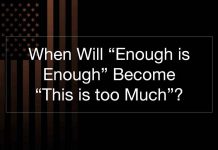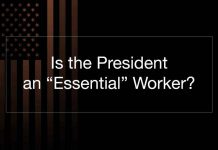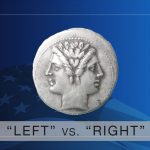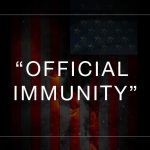Last Updated on January 17, 2022 by Constitutional Militia
Terri Schiavo‘s case raises the profoundly important questions of whether judges are effectively above the law because their decisions—no matter how patently erroneous and destructive—must be accepted as the law, or whether We the People ultimately decide, not only what the laws are, but also how the laws apply to judges, no less than to all other public officials.
If America were a civilized country, no one would doubt that, when the Judiciary’s misuse of power—whether through egregious error, usurpation, or tyranny—threatens an innocent and defenseless individual with death by prolonged torture, the Legislative and Executive Branches of government, and ultimately We the People, do not need to obtain the Judiciary’s permission to remove, and need not heed the Judiciary’s orders to cease and desist from removing, that threat. (And to like effect for egregious errors, usurpation, and tyranny by the Legislative and Executive Branches.) There is no “right to kill” the guiltless and helpless, no matter who in purported “authority” decrees otherwise. Indeed, such a command itself—and surely the execution of any individual under color of such an order—constitutes a crime against humanity. The traditions of Western civilization under the tenets of Christianity settled this matter long before the principle was enforced in the war-crimes trials at Nuremberg and Tokyo, which properly denied the purported defense of “obedience to orders from military or political superiors”, and punished the perpetrators with imprisonment or even death by hanging.
The village idiots in America’s Judiciary, however, now tell Americans that this is no longer a civilized country. Or, at least that judges enjoy the unreviewable license to reinterpret the Constitution of the United States (and, by extension, every other law) according to “authorities” that “point[ ] in an opposite direction” from “the history of Western civilization and * * * Judeo-Christian moral and ethical standards”. See Lawrence v. Texas, 539 U.S. 558, 571-73 (2003) (Anthony Kennedy, J., for the Court). In this announcement, though, the mouthpieces of what Justice Antonin Scalia called “the law profession culture” are speaking only for their own tribe. Yes, by their candid admission, they are no longer civilized. But whether common Americans, too, will discard 2,000 years of Western history, tradition, and moral and ethical standards to join these barbarians in their depravity remains to be seen.
Terri Schiavo’s case is one battlefield on which barbarism and civilization have contended, much the worse for civilization. For Americans now witness the pernicious notion of Lawrence v. Texas applied with its full measure of gruesome, homicidal force by Florida’s Judge Greer, together with the gaggle of State and Federal judges who, with goose-stepping precision, have affirmed, confirmed, or refused to review his order to put Terri Schiavo to death. And a death brought about by means that must choke with revulsion any individual not an admirer of the techniques of the Gestapo, the Kempetai, and the NKVD.
Some people, however, claim that, unpleasant as it may be, allowing Terri Schiavo to be killed by dehydration and starvation was necessary to preserve “the rule of law”. To these people, the matter is one of “judicial supremacy”: that when the courts have decided a case, everyone must acquiesce in that decision and allow it to be enforced, if not affirmatively assist in its enforcement—notwithstanding that the decision commands the death of an innocent and defenseless human being.
One must wonder of what value is a “rule of law” that requires savage human sacrifices to vindicate it—whether the Aztecs would not have been equally justified in rationalizing their mass murders on the same basis—and where is Hernan Cortes and his Conquistadores when America really needs them? But any American can easily see for himself that the theory of “judicial supremacy” some people use to defend Terri Schiavo’s execution is demonstrably false, both in principle and in practice in her case in particular.
As a matter of principle, it may be that, in many cases, sound reasons exist for treating a judicial decision, properly supported with evidence and consistent with the law, as final and binding on the parties before the court (although not necessarily on anyone else). But in many other instances sound reasons may exist for doing exactly the opposite.
For example, assume that some individuals, alleging that the Iranians are secretly building nuclear weapons in a hidden desert factory for the purpose of attacking the United States, file a lawsuit against the Department of Defense, the Army, the Navy, and the Joint Chiefs of Staff, demanding a court order that the Armed Forces immediately launch air strikes to destroy the facility. Relying on the hearsay testimony of the plaintiffs, a judge enters such an order. On appeal, the order is affirmed. The Supreme Court of the United States refuses to review the case. Armed with this final order, the plaintiffs then scurry to a United States Air Force base in the Middle East, and demand that the strikes be launched. The commander of the base telephones the President, seeking guidance. Does anyone in his right mind believe that the President ought to tell the commander, “Yes, go ahead with the attack. We cannot disobey a court order. The case has been fully litigated and appealed. Now the rule of law requires that we bow to judicial supremacy, no matter how many people may be killed in the war the air strikes cause.”?
Of course, this is an easy case, because the Constitution specifically delegates to Congress (not the Judiciary) the power “[t]o declare War”, and makes the President (not any judge) the “Commander in Chief of the Army and Navy of the United States”. Article I, Section 8, Clause 11, and Article II, Section 2, Clause 1. But if “judicial supremacy” does not hold up in this simple situation, it cannot survive in any more complex case in which sound constitutional or other legal reasons can be found to reject it. Whether the issues are easy or hard, such reasons are always entitled to supremacy over the contrary opinions of errant judges—especially when human lives hang in the balance. So, the theory of “judicial supremacy” by itself provides no basis whatsoever for the Legislative or Executive Branches of government, or especially We the People, to shrink from criticism of a judicial decision, and, where any such decision is found sufficiently wanting, to refuse to enforce it, to set it aside, and even to punish the parties and the judges who contrived it.
Especially We the People, for two reasons: First, We the People “ordain[ed] and establish[ed] th[e] Constitution”, and alone may amend it, through our elected representatives. Preamble and Article V. And “[t]he power to enact carries with it final authority to declare the meaning of the legislation”. Propper v. Clark, 337 U.S. 472, 484 (1949). Second, and even more important, as the Founding Fathers’ legal mentor, Sir William Blackstone, pointed out, “whenever a question arises between the society at large and any magistrate vested with powers originally delegated by that society, it must be decided by the voice of the society itself: there is not upon earth any other tribunal to resort to”. Commentaries on the Laws of England (American edition, 1771), Volume 1, page 212. We the People are the ultimate tribunal, and therefore supreme over legislators, executives, and judges alike.
Furthermore, as a matter of practice, Terri Schiavo’s case did not qualify for application of the doctrine of “judicial supremacy”, because several key issues were never adjudicated. For example, whether Terri Schiavo was the victim of abuse that may have been the originating cause of her condition was never determined. Self-evidently, if the courts refused to address this matter, they abnegated their responsibility, abdicated whatever authority they might have had to decide the issue, and therefore could not demand that no one else take it up. In addition, if Terri Schiavo was the victim of abuse, the litigation aimed at putting her to death might be deemed to be a criminal conspiracy designed to cover up the original crime, in which complot the judges were perhaps mere dupes, but also perhaps willing co-conspirators or aiders and abettors. This question, too, has never been decided. Self-evidently, the judges themselves cannot be permitted to shut down an investigation of their own possible misconduct, let alone peremptorily to find themselves innocent of wrongdoing—and particularly by ordering the death of the victim, so as to destroy the key evidence in the case.
Thus, as one might expect, the barbarians’ arguments for setting aside civilization in Terri Schiavo’s case—and in all the other cases that surely will follow it—reduce to bluff, bluster, and bunkum. Nonetheless, the barbarians are well on their way to succeeding, because they are inside the walls of America’s legal citadel, where they can—and plainly intend to—use the law to break the law at every opportunity. Driving them out will not be easy. But for civilization to survive, it is absolutely necessary.
©2005 Edwin Vieira, Jr. – All Rights Reserved.




































